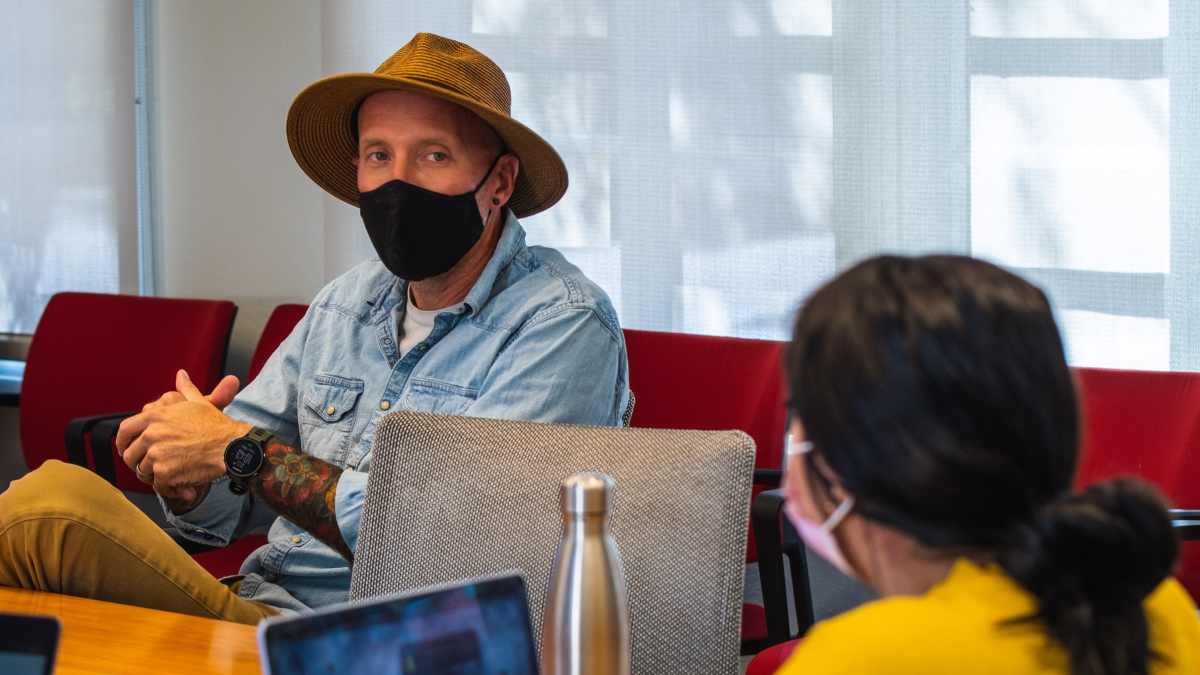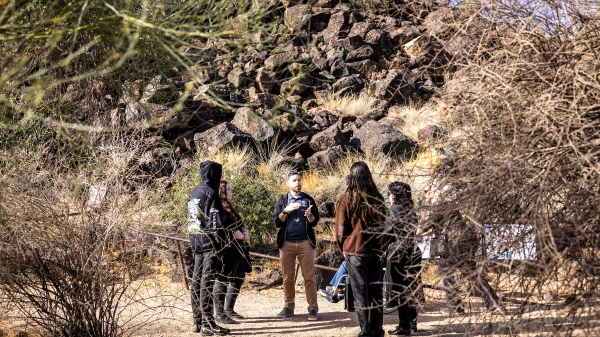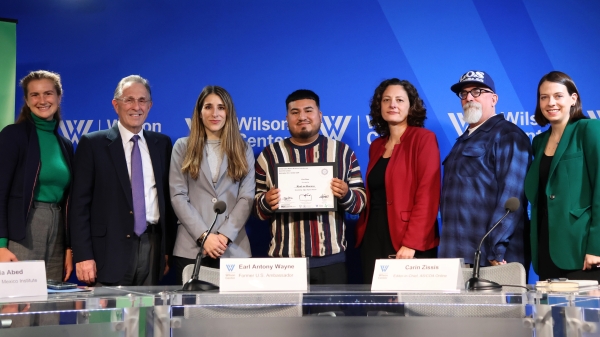ASU center launches Spirituality and Public Life Initiative

Terry Shoemaker, a lecturer in the School of Historical, Philosophical and Religious Studies and a faculty affiliate in the Center for the Study of Religion and Conflict, lectures during REL 394 Spirituality in America — a new course that examines the history and evolving nature of spirituality in the U.S.
Over the course of the past several decades, the religious landscape in the United States has changed rapidly, with about 29% of U.S. adults identifying as religiously unaffiliated and a quarter of U.S. adults saying they think of themselves as spiritual but not religious.
The Spirituality and Public Life Initiative — a new project out of Arizona State University’s Center for the Study of Religion and Conflict — is seeking to explore and better understand this phenomenon through a collection of courses, events and more.
“One of the fascinating things about our culture today is how deeply ‘spirituality’ resonates with people, including college-aged students, yet how people are often averse or allergic to ‘religion.’ Why is that?” said John Carlson, interim director of the center. “This reaction and self-identification has something to do with the role religion — and religious institutions — play in public life.
“We also want to consider what role spirituality might play, or could play, in public life. Because as we look around us, I think that many people would describe a sense that something deeply human but perhaps also transcendent is missing in our collective life together.”
The initiative launched this spring, with the pilot phase of REL 394 Spirituality in America — a new course that examines the history and evolving nature of spirituality in the U.S. The course is taught by Terry Shoemaker, a lecturer in the School of Historical, Philosophical and Religious Studies and a faculty affiliate in the Center for the Study of Religion and Conflict.
A second course — The Spiritual Quest — is currently in development by Tracy Fessenden, the Steve and Margaret Forster Professor of religious studies in the School of Historical, Philosophical and Religious Studies and the director of strategic initiatives in the Center for the Study of Religion and Conflict. The course will focus on literature, highlighting spiritual writing across all major world religions, as well as in nonreligious contexts.
“So many of our students identify as spiritual but not religious,” Fessenden said. “Until now, there have been no courses in religious studies at ASU focused on this path. We want students to feel they have permission to ask the big questions, to know that they stand in long, rich traditions of like-minded seekers in doing so, and to find resources in these traditions for creating just and meaningful lives, whether they take part in any kind of religious practice or not.”
In addition to the two new course offerings, the center will host Serene Jones, a leading public theologian and the president of Union Theological Seminary, for an on-campus speaking event from 4 to 5:15 p.m. on Thursday, March 31.
“Serene Jones is a distinguished scholar, the former president of the American Academy of Religion and the president of one of the most culturally significant seminaries in the country,” Carlson said. “Union Theological Seminary has long been a leader in progressive Christianity, but it is also a place that incorporates insights from — and works to bring together — other religious and spiritual traditions. I can’t think of a more important voice to launch this conversation and initiative.”
This work has been made possible by a founding gift from Penny Davis, a longstanding member of The College of Liberal Arts and Sciences’ Dean’s Council and one of the founders of Catalyst (formerly the Arizona Foundation for Contemporary Theology), a public forum for thinking about theology, faith and spirituality from a non-denominational perspective.
“My spirituality encompasses my deeply held values, how I see myself connected to the world and other people, and what energizes me for action. It influences everything I do, and is in turn influenced by my experiences,” Davis said. “I am enthusiastic about this initiative that will explore the many facets of spirituality in order to recognize how integral it is to our private and public lives.”
Looking ahead, the center hopes to host additional guest speakers and expand the scope of the initiative.
“The sky is the limit when it comes to this initiative,” Carlson said. “There is much work to be done as many scholars, foundations and research organizations are beginning to think about how this framework can apply to public life.”
Learn more about the upcoming event or how to support the Spirituality and Public Life Initiative.
More Arts, humanities and education

Petroglyph preserve celebrates 30th anniversary with ancient, modern tales
The Deer Valley Petroglyph Preserve provides a beautiful walk through a pristine desert where chuckwalla lizards are as plentiful…

Kaleidoscope short film contest inspires powerful binational filmmaking in its second year
“We come to this country not to steal anybody’s jobs but to take advantage of the opportunities that the rest ignore. We’ve been…

ASU's Neal Lester reflects on life, death of poet Nikki Giovanni
When Neal Lester heard on Monday that poet and activist Nikki Giovanni had died, the news hit hard.Lester, the founding director…